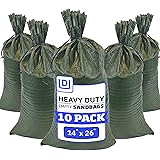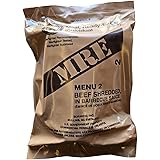Stay Calm and Assess the Situation
Recognize Your Emotions
Being in an emergency can stir up a whirlwind of emotions. Trust me, I’ve been there. The first step is to acknowledge how you’re feeling. Anxiety, fear, and confusion are all normal reactions. Instead of trying to suppress these feelings, take a moment to breathe. Deep breaths like you’re chugging your favorite iced coffee can work wonders!
Once you recognize your emotions, it’s much easier to think clearly. Yeah, it sounds cheesy, but staying calm really does help. By centering yourself, you can start to process what’s happening and figure out the best course of action. Isn’t it funny how our brains can get jumbled when we’re stressed?
So, take a moment. Gather your thoughts. That’s your brain telling you to slow down and not rush into decisions. Assessing the situation isn’t just about knowing what’s happening, but also how you feel about it. Remember, you’re in control of your reactions!
Evaluate Your Surroundings
Okay, once you’ve got a grip on your emotions, it’s time to whip out your inner detective. Scan your environment. Look for exits, gather any nearby people, and take note of who’s around you. If there’s chaos, it might be easy to get distracted, but focus is key here.
Identifying potential hazards is super important. If you’re in a crowded space, keep an eye on factors that could escalate, like an electrical issue or a fight breaking out. It’s like playing a game of chess where you have to anticipate several moves ahead. Every little detail counts in an emergency situation.
Lastly, stay aware of any assistance that may be available. Are there security personnel nearby? Is there a first aid kit in the area? Knowing where resources are can be a lifesaver—literally! I once found a fire extinguisher when I thought a barbeque was about to go haywire, and it saved the day.
Think Before You Act
With all the chaos, it can be tempting to jump into action without thinking. But here’s my secret: take a moment to strategize. Think about the possible outcomes of your choices. You wouldn’t jump into a pool without checking how deep it is, right?
Each situation is unique, and your response needs to align with what’s unfolding. For instance, if there’s a medical emergency, perhaps your role is to call 911 rather than rush to perform first aid. Consider delegating tasks to others around you. It’s much more effective to use manpower wisely than to charge in alone.
== > What if ... Get a FREE Subscription to PREPARE
Above all, keep safety in mind. Making snap decisions can elevate the risk for you and others. I’m all about being a hero, but heroes need to keep a cool head. Just remember, your gut instinct is your friend—if something feels off, trust that feeling!
Communicate Clearly
Use Simple Language
When the heat is on, clear communication is key! I’ve found that using straightforward language can cut through any panic. Try to avoid jargon or complex phrases. You want others to understand you immediately, especially in a loud, chaotic environment.
Imagine shouting complicated instructions while people are scrambling around. Not gonna happen! Instead, use short and direct phrases. For example, say “Follow me!” or “Help!” rather than lengthy explanations. Keep it concise and clear; those few words can save precious time.
If you’re coordinating a group, get everyone on the same page. That means repeating key information until it sinks in. Sometimes, I have to channel my inner drill sergeant in these situations—confidence can make all the difference!
Keep Everyone Informed
During emergencies, I can’t emphasize enough the importance of keeping everyone in the loop. Whether it’s sharing status updates or directing people to safety, make sure your communication is ongoing. If I spot a fire, I’ll let everyone know, “Move to the front exit!”
Surrounding yourself with a solid team can help distribute responsibilities. My experience teaches me that when one person is assigned to alert specific individuals or groups, it minimizes confusion. Keeping a tally of who’s accounted for helps too—like rolling call but way more serious.
Also, stay flexible. New situations require new information, and adapting your communication is essential. If a plan shifts, don’t hesitate to reassign tasks or tell everyone about the change. “Hey, scratch that plan, we’re heading out the back door now!” Adjustments can turn chaos into order.
Use Non-Verbal Cues
Did you know that around 93% of communication is non-verbal? When voice volume goes up and panic ensues, gestures become your best friend. I’ve waved my arms like a madman just to get attention. Sometimes actions speak louder than words, and in emergencies, that can be a literal lifesaver.
Making eye contact is also huge. It lets people know you’re serious about your message. Pointing, nodding, or even giving thumbs up can help convey your intentions without a single word. It’s like signing in a silent film, where expressions matter! At times I felt like I was directing a play onstage.
Be aware of your own body language too. If you seem calm, others are likely to mirror your emotions. A little positivity can go a long way in tense moments. If people see someone confidently leading them, they often feel a sense of safety and assurance in their decisions.
Know Emergency Procedures
Be Familiar with Evacuation Routes
One of the biggest “aha” moments for me was learning the importance of knowing where the emergency exits are! Whenever I enter a new public space, I take a mental snapshot of the layout. Having a plan can save you precious minutes during an emergency situation.
Spend a minute observing the signs and notices posted; they’re there for a reason! Knowing the quickest route out can help you and those around you move efficiently to safety. On one occasion, spotting a fire exit when I was in a big mall saved me and my friends a lot of hassle. It felt like navigating a maze.
Teach others about identified routes too. Don’t be shy to share this information with friends or co-workers; it could make all the difference in critical moments. I once gathered my coworkers for a fire drill, and trust me, knowing those routes ahead of time was super helpful during a real emergency.
Get Preparedness and Self-Reliance Tips. Subscribe Now!
Understand Safety Protocols
When you’re in public spaces, there are typically safety protocols in place. Whether it’s knowing who to contact during emergencies or specific procedures for different types of emergencies, it’s vital to be in the know. I always find it helpful to familiarize myself with any safety briefings when I’m at a hotel or a public venue.
When I was at a conference, they held a brief session to explain what to do during a fire drill. I don’t just clap my hands for fun; it’s a great way for everyone to know how to act. In high-stress moments, having that knowledge really helps keep things orderly.
Don’t hesitate to ask staff questions if you’re unsure about anything. They often have valuable information that helps you stay informed. Remember that no question is too silly in an emergency; it’s all about safety!
Practice First Aid Skills
Let’s be honest, it’s easy to shrug off learning first aid as “not my thing.” But I can’t stress enough how valuable these skills are, as I learned during an incident where someone fainted at a concert. Having the ability to step up and help can provide a sense of empowerment and build your confidence in emergencies.
Take a first aid course when you can. I found one near my home through the Red Cross, and it changed my perspective entirely. Gaining knowledge about CPR, using AEDs, and even simple wound care can be a lifesaver in dire situations.
Not only does this knowledge prepare you for emergencies, but it creates a ripple effect—encouraging those around you to do the same. Imagine a community where people look out for one another! The more people who know basic first aid, the safer everyone becomes.
Act Decisively
Trust Your Instincts
When it comes to emergencies, intuition can be one of your best guides. There’s something about the adrenaline pumping that sharpens your instincts and helps you make faster decisions. I’ve always said, if something doesn’t feel right, chances are something is amiss!
During one experience, I felt compelled to pull a stranger away from a dangerous situation. Every fiber in my body was screaming that it was the right move. Don’t ignore those feelings—they can guide your actions in potentially life-threatening scenarios.
That said, instinct is a combination of gut feeling and learned knowledge. So while I trust my gut, I also refer back to the protocols I learned. It’s a perfect blend of intuition and rationality for suitable decisions in the moment.
Don’t Hesitate to Seek Help
Sometimes it can be tough to accept that you need help. Trust me, I’ve been there. But in an emergency, it’s crucial to admit when you can’t handle it alone. Reach out to first responders or security personnel when available; they are trained for this stuff. If you see someone nearby who looks like they can assist, don’t hesitate to ask!
I remember a time when I thought I could handle a situation on my own until it spiraled. It wasn’t pretty. When I finally found an officer to assist, everything fell into place. There’s no shame in needing a helping hand—everyone’s in this together!
So, if you’re dealing with something overwhelming, it’s okay to call for backup! Utilize your resources, which may include getting medical professionals on site or seeking support from bystanders to get the situation under control.
Follow Up After the Incident
Once the smoke clears, both literally and figuratively, don’t forget to check in with yourself and others. It’s critical to process what just happened and see how everyone’s feeling after the dust settles. I learned to value and prioritize emotional wellbeing after a chaotic situation I faced.
Talking to friends, family, or coworkers can help everyone recover from the experience. Sometimes simply sharing what you went through can be therapeutic. I’ve even taken to journaling about incidents and how I reacted; it’s a great way to understand emotions and feel better.
Moreover, check in with local authorities if necessary. If there’s been significant damage or injury, follow up. Making sure necessary resources are applied guarantees that everyone learns from the experience. It helps to create a safer environment the next time around!
FAQ
1. What’s the first thing I should do in an emergency?
The first thing to do is to stay calm and assess the situation. Take deep breaths and collect your thoughts before taking any action.
2. How do I communicate effectively during an emergency?
Use simple language and clear, direct instructions. Don’t forget your body language! Gestures can also help convey information when words may not be heard.
3. Should I always trust my instincts in emergencies?
Yes, but complement your instincts with what you’ve learned about safety protocols. Your gut feeling is essential, but informed decisions go a long way!
4. Is it important to know first aid even if I’m not a healthcare professional?
Absolutely! Basic first aid knowledge can make a big difference in emergencies and empower you to act in critical situations.
5. What should I do after an emergency has resolved?
Check in with yourself and others to process the situation. Talking about the experience can aid recovery, and follow up with authorities if necessary.






